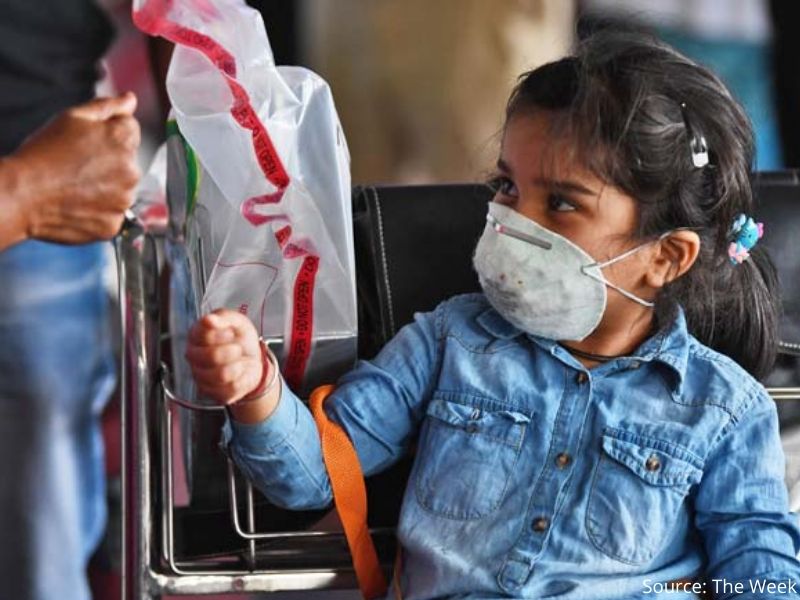UNICEF has warned about the risk of an increasing number of child deaths due to malaria, pneumonia or diarrhoea in developing countries. Study shows that 1.2 million children could die due to lockdown and it ‘far outweighs any threat presented by the coronavirus’. In an interview with The Telegraph, Dr Stefan Peterson, chief of health at UNICEF said that the blanket lockdowns imposed in many low and middle income countries may not be an effective way to control Covid-19 and it could have dangerous consequences.
Dr Peterson expressed his concern about the lockdown measures implemented by several countries without understanding what can be done in a local context. He said, “If families are staying at home in one room in a slum without food or water, it won’t contain the spread of the virus. The objective is to slow the virus, not to lock down people. We need to look at public health as a whole.” The lockdowns could also have a heavy economic toll, which could result in poverty and malnutrition.
A study published in Lancet Global Health journal recently stated that almost 1.2 million children could die over the next six months due to disruption of health services and unavailability of food supplies due to the outbreak of coronavirus pandemic. Researchers at the Johns Hopkins Bloomberg School of Public Health and Unicef found that child mortality rates could rise by 45 per cent and maternal deaths by 39 per cent due to the disruptions caused by COVID-19.
Dr Peterson said these could be fallouts of strict containment measures in many countries preventing people from leaving their homes without documentation making it difficult for them to access essential healthcare services. In some countries, people are avoiding hospital visits fearing that they could get infected by the virus. As the focus of healthcare services are largely on the pandemic, it is being said that at least 117 million children worldwide will likely miss out on routine immunisations this year.
The research studied the disruptions in 118 low and middle income countries due to the lockdown. Even in the most optimistic case, where access to health services has dropped by 15 per cent, an additional 2.53 lakh children and 12,200 mothers have died. And in the areas where the services are hit by 45 per cent and the proportion of children who are wasting has grown by 50 per cent, it could result in an additional 1.16 million child deaths and 57,000 maternal deaths in just six months. It has also showed that India would see the largest number of additional deaths among children and mothers followed by countries like Nigeria. Pakistan, the Democratic Republic of Congo, Tanzania and Indonesia.
Earlier, research has shown that during the Ebola outbreak in west Africa in 2014, more people died from other issues than the disease itself. But the scale of the pandemic means the consequences will be far greater. “We will see a hike in the number of deaths among children due to pneumonia, diarrhoea and measles than COVID-19. These threats far outweighs any threat presented by the coronavirus in low and middle income countries,” he said urging countries not to impose draconian lockdowns. The countries can instead focus on identifying hotspots so that restrictions can be introduced in certain areas causing lesser harm to public health. He feels Covid-19 is turning into a ‘child’s rights crisis’ that is depriving a generation of basic rights to health, education and economic prospects.
UNICEF launched its largest appeal in its history of 73 years. Speaking at the launch of the ‘Save Generation Covid’ campaign, Sacha Deshmukh, executive director of Unicef UK said this pandemic is undoubtedly the biggest and most urgent global crisis children have faced since World War II.
Source: The Telegraph
Recommended: Queries on mental health of kids triple during lockdown
